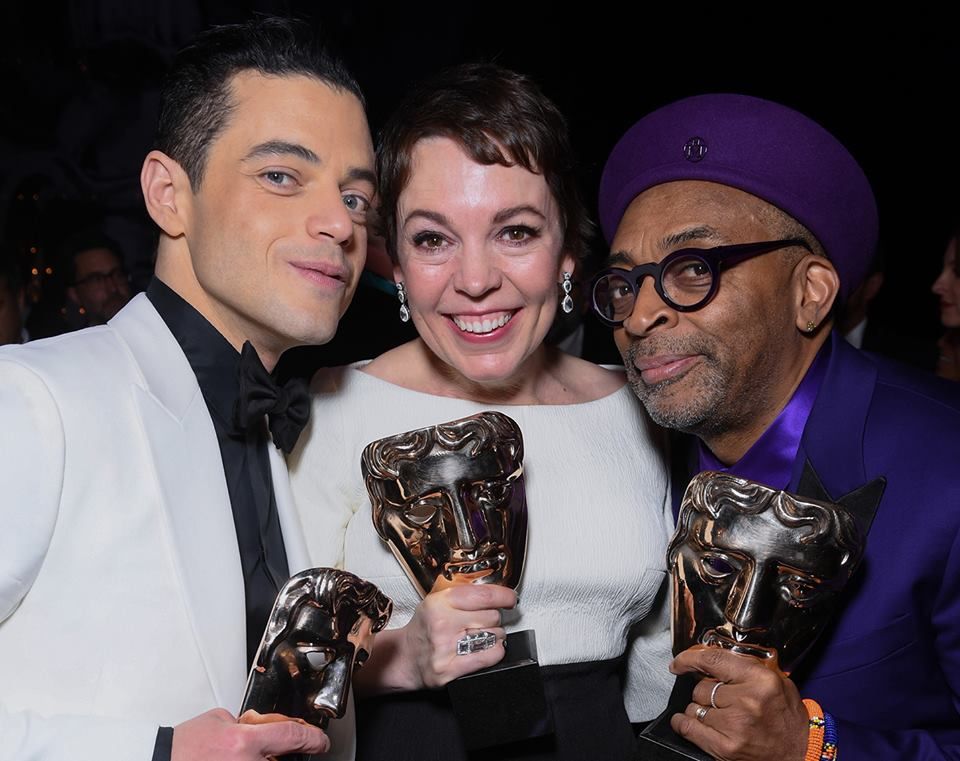The BAFTAs are a bore
On Sunday 10 February, the 72nd British Academy Film and Television Awards – the last major ceremony before the Oscars – drew its lowest TV audience in six years. This year, BBC1’s coverage of the Baftas was watched by 4.5 million people – 500,000 people fewer than last year. On a night of joy and disappointment, bad jokes, boring speeches, and nothing for Stan & Ollie, who were the real winners and losers at the Royal Albert Hall?
Joanna Lumley’s opening monologue – chock-full of painfully awkward, squirm-inducing jokes – was the antithesis of good television. The Absolutely Fabulous star, who returned for a second stint as host, told one particularly notable terrible gag when welcoming director Spike Lee and star Adam Driver – the team behind BlackKkKlansman – to the ceremony. When speaking about the nominated movie, Lumley commented: “It’s an incredible film. It’s already won many awards. If I’m honest, I’m surprised it did so well as the Klannes film festival.” Lumley continued with the toe-curling japes throughout the night, at one point joking about how actor Claire Foy, the First Man star, needed to take “a small step and one giant leap” to reach the stage. Unsurprisingly perhaps, these duds fell flat with the audience – when the camera cut away to Steve Coogan, his rictus grin hinted at the feelings of the crowd.
Considering Bafta are keen to ensure diversity is at the forefront, […] there is still much more to be done
If Joanna Lumley’s lame monologue was one of the real losers of the Baftas, then diversity was undoubtedly the biggest winner at this year’s ceremony, with Alfonso Cuaron’s Mexican-American drama Roma – which offers a tender portrait of the daily rituals of a housekeeper – taking the award for ‘Best Film’, ‘Best Director’, and ‘Best Film not in the English language’. The ‘EE Rising Star Award’ is also a showcase for the Bafta’s diversity commitment. Won on a popular vote in recent years by Daniel Kaluuya (Get Out) and John Boyega (Star Wars: The Force Awakens), it went to British actress Letitia Wright. The Bafta winner and Black Panther star beat Cynthia Erivo (Widows), Lakeith Stanfield (Sorry to Bother You) and Jessie Buckley, the female lead of Beast, for the award.
It was also refreshing to see a female screenwriter, Deborah Davis, win the gold faced prize for ‘Best Original Screenplay’. In her acceptance speech, Davis said: “Thank you for celebrating our female dominated movie about women in power.” The Favourite’s production designers Fiona Crombie and Alice Felton received one of the biggest cheers when they dedicated their win to “every woman and working mother who keeps it together and makes it happen.” The celebration of diversity in the industry certainly seems to have been an underlying theme of the evening (apart from the odd jibe about Brexit, of course).
It’s no secret that awards shows are increasingly becoming too monotonous, too long, and too self-important
This year’s ceremony was the first to take place since Bafta introduced new awards eligibility rules to reward diversity in its films and honours. But although change is happening, it is too slow for many observers, who point to the lack of women director nominations. Indeed, the only woman to ever win is Kathryn Bigelow for The Hurt Locker in 2009. Commenting on the all-male shortlist for the best director category, Adam Smith, chair of the London film critics circle and host of the Girls on Film podcast, said: “The lack of female directors nominated in the directing category is very disappointing.” Smith added: “The voting pool is so big that the marketing budgets and high-profile stars are clearly going to have an impact, just as they do at the Oscars. It seems to me that often films by women, and black and Asian stories, don’t get the kind of publicity spend that others do.”
I too was dismayed by the Bafta voters’ failure to nominate a single woman in the best director category. Personally, I felt that British director Lynne Ramsay, who directed Joaquin Phoenix in the 2018 thriller You Were Never Really Here, was a disappointing omission from the awards circuit. Considering Bafta are keen to ensure diversity is at the forefront, this clearly shows that there is still much more to be done.
It’s no secret that awards shows are increasingly becoming too monotonous, too long, and too self-important. The two-hour broadcast from 9pm was a snooze-inducer and, in my opinion, highlights why such ceremonies should no longer be televised. Going forward, a press release at the end and a handful of YouTube clips – perhaps showing some of the best fashion moments and a couple of speeches – is all that’s really needed. I’m fairly certain that’s how most of us consume then now anyway. Giving celebrities any more attention than they already have makes them think that we want to hear them spouting half-baked opinions about Donald Trump and Brexit – awards presenters Andy Serkis and Eddie Marsan both managed to crowbar contrived Brexit gags into their remarks. I don’t know about you, but I think this is perhaps the most convincing case to ban the televising of awards shows.

Comments